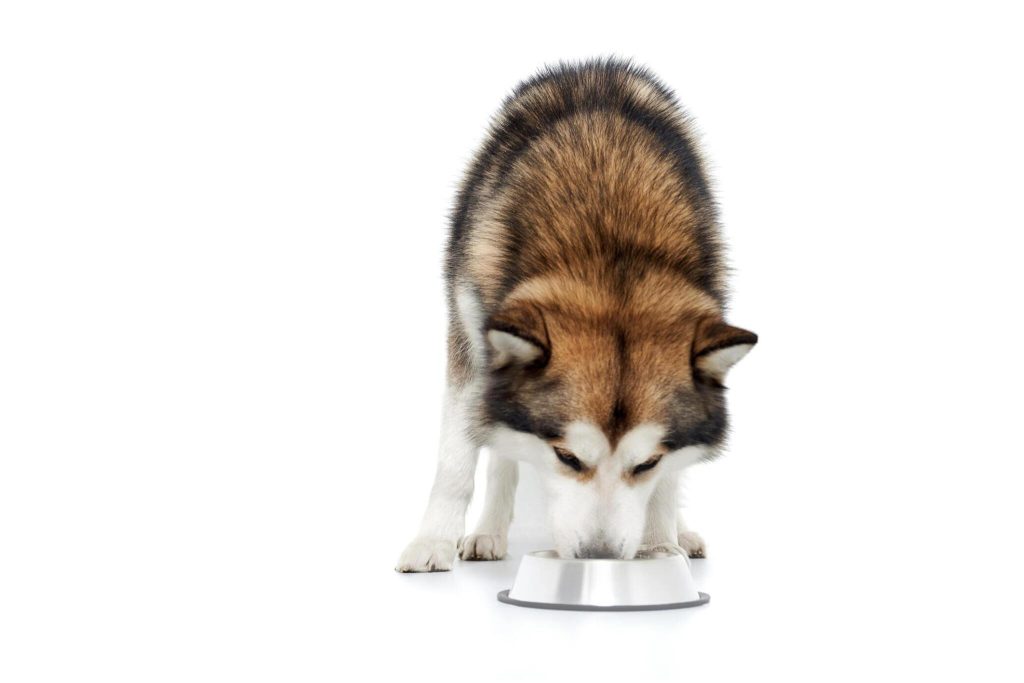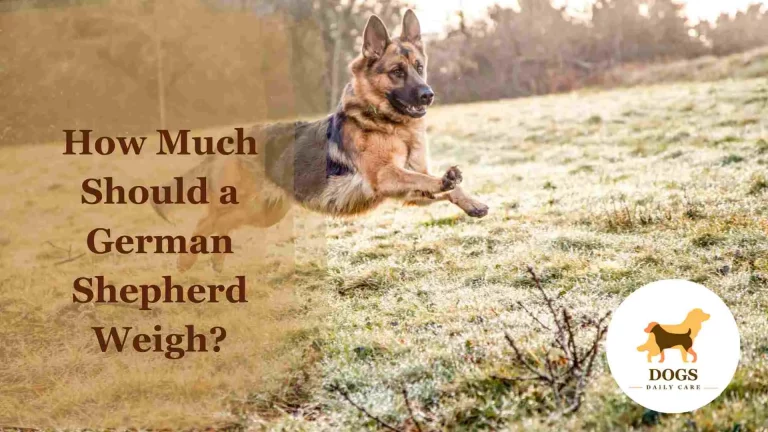How Much Should a Husky Weigh? – All You Need To Know
Understanding the ideal weight for a Siberian Husky is a crucial aspect of ensuring their health and well-being. These energetic and striking dogs are known for their impressive stamina and distinctive appearance, but like all breeds, they have specific needs when it comes to their physical condition.
It’s essential for husky owners to be aware of the optimal weight range for their furry companions, taking into account variations due to age and gender. Knowing these details not only helps in maintaining the husky’s health but also enhances their quality of life, ensuring they’re as active and happy as they should be.
However, figuring out the right weight for your husky can be a challenge, especially considering the differences that arise as they grow and develop. Male and female huskies have different ideal weight ranges, and these change as they transition from playful puppies to mature adults. In this guide, we will explore the various factors that influence a husky’s weight, provide helpful charts, and offer insights to help you determine if your husky is on the right track. Whether you’re a new husky parent or looking to fine-tune your long-time companion’s health, this information is an invaluable tool in your journey of responsible husky care.
Understanding Huskies: Breed Overview
The Siberian Husky is a breed that captures attention with its wolf-like appearance and striking blue or multi-colored eyes. Originating in Northeast Asia, huskies were initially bred by the Chukchi people for sled pulling and companionship. Known for their thick fur coat, these dogs are well-equipped for cold climates. This background gives them a unique set of characteristics that directly impact their health and weight.
Huskies are medium-sized dogs, but what sets them apart is their remarkable endurance and energy. They are athletic and love to run. This love for activity means they need regular exercise to stay healthy. However, their energetic nature also means they can easily burn off calories. This balance between exercise and diet is crucial in maintaining their ideal weight.
Another key trait of huskies is their efficiency in using food energy. They are known for requiring less food than other breeds of similar size, thanks to their ancestral survival in harsh climates. But, this doesn’t mean they should eat less. It’s all about finding the right diet that matches their energy needs. This efficient metabolism also means that any changes in diet or exercise can quickly impact their weight.
Understanding these unique traits of the Siberian Husky is vital for any owner. It helps you provide the best care, ensuring your husky stays happy, healthy, and at an ideal weight. In the following sections, we’ll dive deeper into what a healthy weight looks like for huskies and how it changes with age and gender.
The Importance of Healthy Weight in Huskies
Maintaining a healthy weight is crucial for a Husky’s overall well-being. Just like in humans, being overweight or underweight can lead to a range of health issues in these dogs. A well-balanced weight supports their high energy levels and keeps their joints and muscles in good shape. For a breed as active as the Husky, this is especially important.
Overweight Huskies face various health risks. These include joint problems like arthritis, heart disease, and even diabetes. Excess weight can put extra strain on their body, reducing their stamina and agility. This is a significant concern for a breed known for its energy and love for running. On the flip side, underweight Huskies can suffer from nutritional deficiencies and a weakened immune system. It’s all about striking the right balance.
The right weight for a Husky isn’t just a number on a scale. It’s about ensuring they have the right amount of body fat and muscle for their age and size. This balance is what keeps them healthy and ready for their adventures. It’s not just about how much they eat, but also the quality of their diet and their exercise routine. A healthy weight Husky is a happy Husky, ready to explore, play, and enjoy life to the fullest.
Husky Weight Chart: Age and Gender Considerations

When it comes to understanding the ideal weight for your Husky, age and gender play significant roles. As Huskies grow from puppies into adults, their weight changes. Additionally, male and female Huskies typically have different weight ranges. Let’s break this down with a straightforward weight chart.
Note: These ranges are general guidelines. Individual Huskies may vary.
In the early months, Husky puppies grow quickly. You’ll notice rapid weight gain as they develop. As they approach one year, their growth slows down, and their weight begins to stabilize. This is when you start seeing the adult weight patterns emerge. Male Huskies generally weigh more than females, reflecting their slightly larger build.
Understanding this chart helps you monitor your Husky’s growth and ensure they are on track. But remember, every Husky is unique. Besides weight, look at their overall body condition. They should have a visible waist and you should be able to feel (but not see) their ribs.
Regular check-ups with your vet are essential. They can provide personalized advice and help you ensure your Husky is healthy and happy at every stage of their life.
Factors Influencing a Husky’s Weight

Understanding what affects your Husky’s weight is key to keeping them healthy. Several factors play a role, and it’s not just about how much they eat. Let’s look at the main factors influencing a Husky’s weight.
1. Diet and Nutrition
What your Husky eats is crucial. High-quality dog food provides the nutrients they need. Be mindful of the amount too. Overfeeding can lead to weight gain, even with the best food.
Treats are fine in moderation. But too many can add extra calories quickly. It’s all about balance.
2. Exercise and Activity Level
Huskies are energetic dogs. They need regular exercise to stay fit. Without enough activity, they can gain weight.
Activities like running, hiking, or playing fetch help keep them in shape.
3. Health Conditions
Sometimes, weight changes aren’t just about diet or exercise. Health issues can play a part too.
Conditions like thyroid problems can affect their weight. Regular vet check-ups are important to catch any issues early.
4. Age
Age is a factor too. Puppies and younger Huskies have different nutritional needs compared to older dogs.
As Huskies age, their metabolism can slow down, affecting their weight.
Each Husky is unique. Paying attention to these factors helps you provide the best care. Regular vet visits, a balanced diet, and plenty of exercises will keep your Husky at a healthy weight. Remember, a healthy Husky is a happy Husky!
How to Determine if Your Husky is at a Healthy Weight
Knowing if your Husky is at a healthy weight is vital for their overall well-being. Here are some straightforward ways to tell if your Husky’s weight is on track:
1. Visual Inspection
Look at your Husky from above. They should have a noticeable waist. If their sides are straight or bulging, it might be a sign of excess weight.
A side view should show a slight tuck-up in the belly area. If the belly hangs low, this could indicate overweight.
2. Feel Test
Gently run your hands along your Husky’s sides. You should be able to feel their ribs without pressing hard. If you can’t feel the ribs, they may be overweight.
The spine and hips shouldn’t be too prominent. If they are, it could mean your Husky is underweight.
3. Regular Vet Visits
Your vet is your best resource. They can provide precise weight assessments and advice.
During check-ups, the vet can evaluate your Husky’s weight and overall health. They can also offer diet and exercise recommendations.
4. Monitor Activity and Behavior
A healthy weight Husky is energetic and enjoys regular activities. If your Husky seems lethargic or uninterested in exercise, it might be a weight issue.
Keep an eye on their eating habits too. Overeating or lack of appetite can be signs of weight problems.
Remember, each Husky is different. What’s ideal for one may not be for another. Regular monitoring, combined with vet guidance, ensures your Husky stays healthy and at an ideal weight for their unique needs.
Tips for Maintaining a Healthy Weight in Huskies
Keeping your Husky at a healthy weight is key to their long-term health and happiness. Here are some practical tips to help you achieve this:
1. Balanced Diet
- Feed your Husky high-quality dog food that’s appropriate for their age, size, and activity level.
- Avoid overfeeding. Stick to recommended portion sizes and adjust as needed based on your Husky’s activity.
- Treats should be given sparingly. They’re not a substitute for a balanced diet.
2. Regular Exercise
- Huskies need daily exercise to stay fit. Include activities like walking, running, or playing in your routine.
- Exercise not only helps with weight management but also keeps your Husky mentally stimulated.
Remember, Huskies are a high-energy breed. They thrive on activity.
3. Consistent Feeding Schedule
- Stick to a regular feeding schedule. This helps regulate their metabolism and prevents overeating.
- Consistency in feeding times and portion sizes can significantly impact weight control.
4. Monitor Weight Regularly
- Keep track of your Husky’s weight. Regular weigh-ins can help you notice any changes early.
- If you notice weight gain or loss, adjust their diet and exercise routine accordingly.
5. Vet Check-Ups
- Regular visits to the vet are crucial. They can provide guidance on diet and exercise tailored to your Husky’s specific needs.
- If you’re struggling with weight management, your vet can offer professional advice and solutions.
By following these tips, you can help ensure your Husky maintains a healthy weight. A well-balanced diet, regular exercise, and consistent monitoring are the keys to a healthy, happy Husky.
Frequently Asked Questions (FAQs)
1. What is the ideal weight for an adult Husky?
Adult male Huskies typically weigh between 45 and 60 pounds, while females weigh between 35 and 50 pounds. However, individual factors like height and build can vary.
2. How often should I exercise my Husky to maintain a healthy weight?
Huskies require daily exercise, ideally 1-2 hours per day. Activities should include walks, runs, or playtime.
3. Can Huskies be prone to obesity?
Yes, Huskies can become overweight, especially if their diet isn’t managed well or they lack sufficient exercise.
4. How can I tell if my Husky is underweight?
Signs of an underweight Husky include visible ribs, spine, or hip bones. They may also lack energy and have a dull coat.
5. Are there specific health risks for Huskies who are overweight?
Overweight Huskies are at risk for joint problems, diabetes, and heart disease. Proper weight management is essential.
Remember, every Husky is unique, and what’s right for one may not be for another. Always consult with your vet for personalized advice regarding your Husky’s health and weight management.
Conclusion
In conclusion, understanding and maintaining the ideal weight for your Husky is a key aspect of responsible pet ownership. It’s not just about keeping them looking good, but ensuring their health, happiness, and longevity. Regular monitoring of your Husky’s weight, coupled with the right balance of diet and exercise, can make a significant difference in their quality of life. Remember, each Husky is unique, and what works for one may not be ideal for another, so personalizing your approach is essential. Keeping your Husky at a healthy weight is a journey that requires attention and care, but the rewards of a vibrant, active, and healthy companion are well worth the effort.
As we’ve explored, factors like age, gender, diet, and activity level all play a role in determining the ideal weight for your Husky. Regular vet check-ups and staying informed about your Husky’s specific needs will help you make the best decisions for their well-being. Embrace this journey with your Husky, and enjoy the active, fulfilling life you both can share. Your commitment to their health reflects the love and bond you share, ensuring that your Husky remains not just a pet, but a cherished member of your family.







